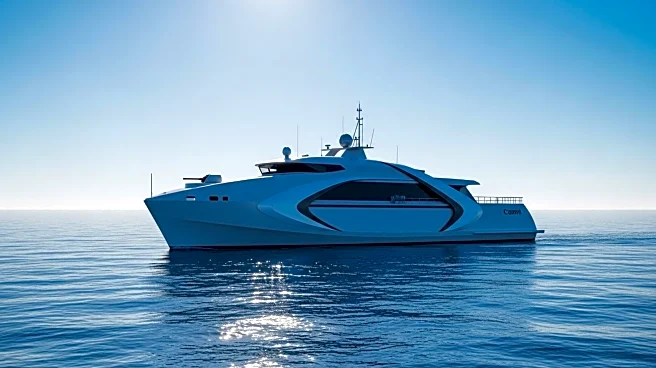What is the story about?
What's Happening?
Blue Water Autonomy, a Boston-based company specializing in unmanned ships for the U.S. Navy, has raised $50 million in Series A funding. This follows a $14 million seed round earlier in 2025, bringing the total funding to $64 million. The company plans to deploy its first long-range autonomous ship next year. The funding will support the development of ships designed for maritime security and logistics, capable of operating on the open ocean for extended periods. The Pentagon is accelerating plans for autonomous vessels to bolster the U.S. fleet, leveraging $2.1 billion in Congressional funding for medium-sized unmanned surface vessels.
Why It's Important?
The development of autonomous ships is crucial for enhancing the U.S. Navy's capabilities, especially as China continues to dominate global shipbuilding with significantly greater capacity. Autonomous vessels offer a strategic advantage by complementing traditional naval assets and addressing maritime security challenges. The investment in Blue Water Autonomy reflects a broader push to innovate and maintain competitive edge in naval technology. This move could also open opportunities in commercial maritime markets, addressing jobs that are dull, dangerous, and dirty.
What's Next?
Blue Water Autonomy plans to deploy its first autonomous ship next year, marking a significant milestone in its development. The company has expanded its team and opened a Washington D.C. office, indicating a commitment to scaling operations. As the Pentagon continues to invest in autonomous naval technology, further collaborations and contracts may emerge, potentially influencing defense policy and procurement strategies.
Beyond the Headlines
The shift towards autonomous naval technology raises ethical and operational questions about the future of maritime warfare and security. The integration of AI and autonomous systems in defense could lead to changes in military strategy and the role of human operators. Additionally, the commercial applications of this technology could transform maritime industries, impacting labor markets and environmental practices.

















